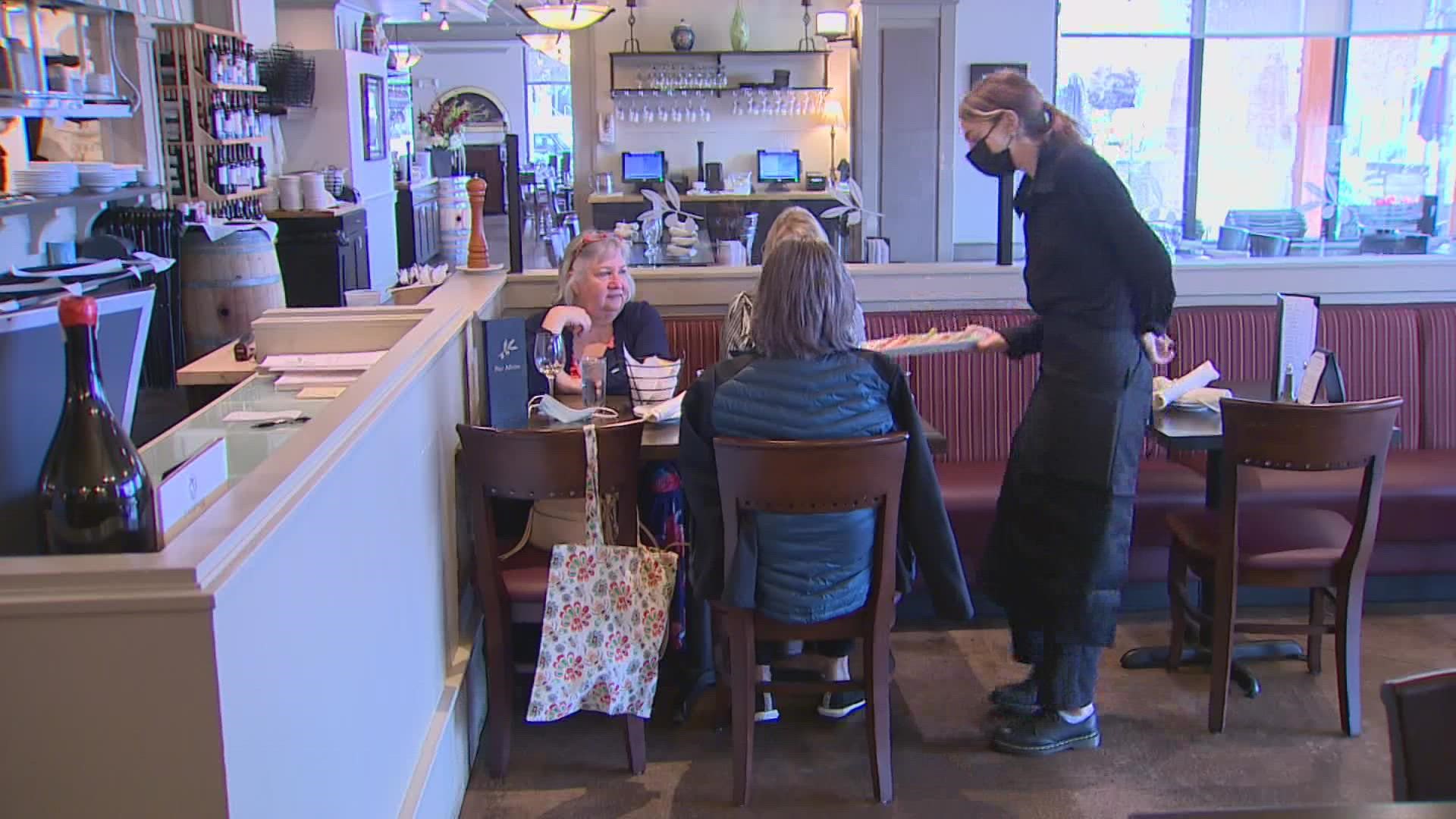BELLINGHAM, Wash. — Hazard pay premiums during the COVID-19 pandemic have become a tough issue for businesses and their employees. Now, the prospect of making the pay permanent during emergencies is being put to voters in the city of Bellingham.
Initiative 4 would mandate a $4 an hour premium for most hourly workers during a state of emergency, including the duration of the COVID-19 pandemic.
Campaigners with People First Bellingham said they see this as a historic opportunity. The pandemic has revealed deep disparities in the labor force, with low-wage earners often the ones who are put on the frontlines risking their health.
"When you take a step back and look at where we are, it's imperative that we change our system, our communities and our businesses to really put people first," said Maya Morales, of People First Bellingham.
The additional $4 per hour would go to workers directly impacted by a state of emergency, whether it is declared on a federal, state or local level.
"When we have different kinds of emergencies where we need to show up for workers and give them hazard pay if they're in a hazardous situation," said Morales. "We do it for other kinds of work that is hazardous."
The initiative is one of four on the ballot that all focus on social justice as well as worker and tenant rights.
The initiative is opposed by business groups in Bellingham who believe it likely will not survive legal challenges. The Bellingham City Council has also come out against it.
"My first thought was, 'oh my gosh. This is really going to hurt small businesses in Bellingham,'" said Kerri Lonergan-Dreke, CEO of Lombardi's restaurants.
She said her Bellingham location would likely have to raise prices by 30% if there was an emergency declaration for something as simple as a snowstorm or wildfire smoke.
"It would be devastating, and it would hurt the very people it's intended to help," said Lonergan-Dreke. "That would be our staff. We'd probably be laying people off, cutting hours."
Lonergan-Dreke believes the initiative's ripple effect would do more harm than good, especially when so many businesses are still struggling and the future is still uncertain.
"I'd like to see us all sit down and work together to come up with a plan that fits for everyone, businesses and workers," she said.
Morales conceded that the initiative isn't perfect, but believes it is a starting point for city leaders and businesses to talk about fair pay for hourly workers.
Other elements of the initiative would discourage arbitrary reductions in hours and penalize employers for last-minute schedule changes.

